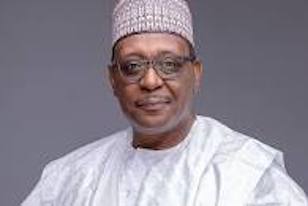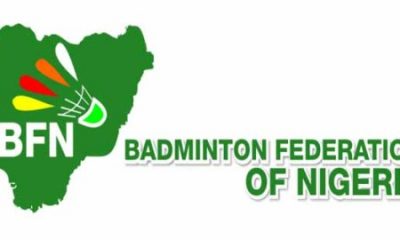Health
Bauchi, Gombe, Jigawa move against medical quackery

Bauchi, Gombe and Jigawa governments have adopted proactive regulations and monitoring mechanisms to end medical quackery to fasttrack quality healthcare service delivery.
Officials of health agencies and other stakeholders said the measure was imperative to sanitise medical profession, end malpractices and safeguard public health in the respective states.
The health experts spoke in separate interviews in Bauchi, Gombe and Dutse while responding to a survey on monitoring and regulation of health facilities by government agencies.
They defined quackery as the practices involving false knowledge of a particular field. Quacks are found among doctors, nurses and other health personnel.
According to the experts, quackery is one of the major problems bedeviling the Nigeria’s health sector in spite of its negative consequences.
They listed some of the negative impacts to include increase maternal and childhood mortality; increase unemployment rate of registered nurses and midwifery, discredit medical and nursing education, poor treatment outcome and weakened healthcare system.
To address the menace, the Nigeria Medical Association (NMA) in Bauchi State, constituted an anti-quackery committee to enhance monitoring of public and private clinics.
The NMA’s Secretary, Dr Abdullahi Kabir, said the measure would enhance access to quality healthcare service delivery at the grassroots.
He said the committee was mandated to investigate alleged malpractices and report to the state Ministry of Health for appropriate action.
“The association set up a sub committee saddled with the responsibility to seek public and staff opinion on the operations of private clinics.
“In the event of suspected malpractices or compromise in the services rendered, the committee will investigate and notify the Ministry of Health on the matter.
“The ministry, NMA or the Dental Council will take action. NMA plays an advisory role in monitoring private health facilities,” he said.
Kabir warned that erring members of the association found wanton in the course of monitoring or investigation would be sanctioned.
In Gombe, the state government said it only certified registered and licensed medical workers to operate, according to Dr Arnold Abel, Director Medical Services in the state Ministry of Health.
This, he said, was part of proactive measures adopted towards achieving quality healthcare service delivery through sound regulations and monitoring.
He, however, said that state governments were not expected to regulate training and practice of medicine, rather they only construct, equip and provide the requisite manpower needed for health facilities.
“The Gombe government adopted measures to ensure compliance in terms of licensing of medical officers.
“The Medical and Dental Council of Nigeria (MDCN) only regulates the training and practice of medicine in Nigeria, but doesn’t have any role whatsoever in the establishment of hospitals.
“However, all doctors practising in the state must renew their licences every year before being granted licences to practice.
“Other health professionals are also required to be licensed by their appropriate regulatory bodies.
“Regulations are necessary for standardisation and supervision to ensure that healthcare bodies and facilities comply with public health policies to enable them to provide safe care to all patients in the health system,” he said.
According to Abel, the Private Hospitals Registration and Regulatory Authority (PHRRA) under the Director of Medical Services of the ministry is statutorily responsible for inspecting and granting licences for new private hospitals.
The hospitals, he said, are required to pay the necessary registration fees to the government.
“The PHRRA visits hospitals annually to ensure that they practice in conformity to the laid down regulations, and the Authority has the powers to sanction erring private facilities through suspension and even outright permanent closure (revoke licences).”
In the same vein; the Jigawa Maternal Accountability Forum (JiMAF), has stepped up surveillance activities to enhance accountability and quality service delivery in health facilities in the state.
The JiMAF’s Evidence Committee Secretary, Alhaji Isa Mustafa, said the forum established Word Development Committees (WDCs) across the 287 wards, to monitor operations of health facilities across the state.
JiMAF comprises representatives of the civil society organisations, media, development partners and the public sector.
Similarly, the state governor, Umar Namadi during a recent visit to the General Hospital, Dutse, frown at the unbecoming behaviour of some health workers allegedly found selling free drugs meant for women and children.
He said the action sabotaged government’s policy on free healthcare for children and lactating mothers.
The governor, who expressed dismay over the poor state of the facility, directed for adequate monitoring and supervision of all health facilities to enhance quality healthcare service delivery in the state.
Health
Psychiatrists Demand Decriminalization of Attempted Suicide

By Ubong Ukpong, Abuja
Association of Psychiatrists in Nigeria (APN) President, Prof. Taiwo James Obindo, has asked for the decriminalization of attempted suicide in the country.
He made the call at a stakeholders meeting organized by the House of Representatives Committee on Specialty Healthcare on the need to prioritize and implement the Mental Health Act.
Obindo said the establishment of the National Counselling Centers all over the country in an attempt to address mental health was like putting the cart before the horse, because suicide attempt was still a criminal offense in both the Criminal Act and the Penal Code.
“Hence the first step would be a move to decriminalize attempted suicide.
Criminalizing attempted Suicide has proven to be a major barrier for suicide prevention intervention service uptake.“The archaic law, inherited from our Colonial masters, in an attempt to stop the act of suicide did not address the thoughts and social determinants of Suicide. Significant evidence showed that 90% of those who take their lives through suicide had a background history of Mental Health Conditions; out of which 80% are attributable to Depression due to various bio-psycho-social aetiologies.
“Why do we, as a Nation, then punish individuals who are ill and need medical attention rather than prosecution? It will shock you to know that Nigeria, the giant of Africa, is lagging behind as quite a number of our neighbouring nations have abrogated that law.
“Establishing a Counselling center, without abrogating this archaic law would put, even the counselors at risk because the law also prescribes penalties for those who are aware of the plan but did not report,” he said.
The psychiatrists Association President called for the implementation of the Mental Health Act, which he said was a product of legislation that went through rigorous processes by the legislature, assented to by the President of the Federal Republic of Nigeria in 2022, and has been gazetted as a law in the Country.
This, he said, would address the “many years of neglect of this important aspect of our nationhood.”
Obindo said a requirement for the effective implementation of the Act was the establishment of a Mental Health Services Department in the Federal Ministry of Health.
“It will shock you to hear that, more than a year later, the department is yet to be established. Most of, if not all, the items in your plan are meant to be supervised by this department in obedience to the rule of law! Hence, the establishment of the department is germane to the success of all your plans,” he said.
He said the Association of Psychiatrists in Nigeria was an umbrella body of all Psychiatrists in the Country and other allied Practitioners.
He said they have been at the forefront of campaigns and advocacy for global best practices.
He lauded the Committee for the initiative, saying when well-implemented, would positively impact the hitherto neglected Mental Health, persons affected by Mental Health Conditions, and Mental Health Practitioners.
Chairman of the Committee on Special Healthcare, Dr Alex Egbona, said all stakeholders must partner to address mental health challenges and other related health cases.
The lawmaker said the committee was created to provide the requisite legislative frameworks for improved healthcare delivery in Nigeria.
He said the session was a collaborative initiative of the committee to share its mandate and planned activities with identified relevant institutions and organisations.
“I, therefore, solicit the support and partnership of all stakeholders, our development partners, international NGOs, and CSOs, you are all urged to take interest in building the capacity of the committee members and staff to enhance the efficacy of the committee.
“Consider our five thematic areas of Mental Health, Trauma and Obstetrics Fistula, Oral Health and ENT, Blood Transfusion, Blood and Management, Traditional Complementary and Alternative Medicine and engage the committee for maximum impact,” he said.
Health
WHO Expresses Concern over Monkey Pox Outbreak in DRC

25,318 suspected cases of monkey pox, including 1,204 deaths, have been reported in the Democratic Republic of the Congo (DRC) since the declaration of monkey pox outbreak in December 2022.
The World Health Organisation (WHO) said on Tuesday.
According to the latest report, the outbreak, which was declared by the DRC Health Ministry on Dec.
16, 2022, was prompted by a notable surge in cases and fatalities associated with monkey pox as well as a fast spread to non-endemic provinces.Since the beginning of 2024, a total of 5,133 suspected cases, including 321 deaths, have been reported, according to the WHO report. It warns that the current situation of the outbreak in the DRC is of “grave concern” due to the sustained increase in suspected cases compared to previous years.
It added that with a significant burden in younger populations, particularly children under 15 years of age, who constitute the majority of both suspected cases and deaths.
In April 2024, a high-level emergency regional meeting on monkey pox in Africa was convened in DRC capital Kinshasa, gathering 12 health ministers of regional countries, aiming to develop common strategies to prevent and intervene effectively in the face of monkey pox in Africa.
“We must prevent the DRC from becoming the source of cross-border transmission, and our partnership must prioritise the health of those affected,’’ said Jean Kaseya, the director general of the African Centers for Disease Control and Prevention (Africa CDC) at the meeting.
“Over the years, monkey pox has become a real public health problem for our communities in the DRC, a regional threat and ultimately a global problem.
“We must now mobilise to resolve this crisis,” said Roger Kamba, DRC minister of public health, hygiene and prevention, said at the meeting.
Monkey pox, first detected in laboratory monkeys in 1958, is assumed to be transmitted from wild animals such as rodents to people or from human to human (Xinhua/NAN)
Health
WHO Warns of ‘Bloodbath’ as Rafah Offensive Looms

The World Health Organisation (WHO) has warned of dire consequences if Israel goes ahead with an impending military operation in Rafah.
The planned push into the southern border city of Rafah would lead to “a bloodbath,” the organization wrote on X, formerly twitter on Saturday
The WHO said that more than 1.
2 million people were currently sheltering in the area, many unable to move anywhere else.“A new wave of displacement would exacerbate overcrowding, further limiting access to food, water, health and sanitation services, leading to increased disease outbreaks, worsening levels of hunger, and additional loss of lives.
”According to the WHO, only 33 per cent of Gaza’s 36 hospitals and 30 per cent of primary health care Centre’s were functional in some capacity amid repeated attacks and shortages of vital medical supplies, fuel, and staff.
WHO calls for an immediate and lasting ceasefire and the removal of the obstacles to the delivery of urgent humanitarian assistance into and across Gaza, at the scale that is required.
Israeli Prime Minister, Benjamin Netanyahu is determined to launch an offensive in Rafah to eliminate the remaining strongholds of Hamas.
The organisation said that although Israel’s allies have repeatedly urged caution, as a large majority of the approximately 2.2 million inhabitants of the Gaza Strip have fled to the south during the war. (dpa/NAN)



















